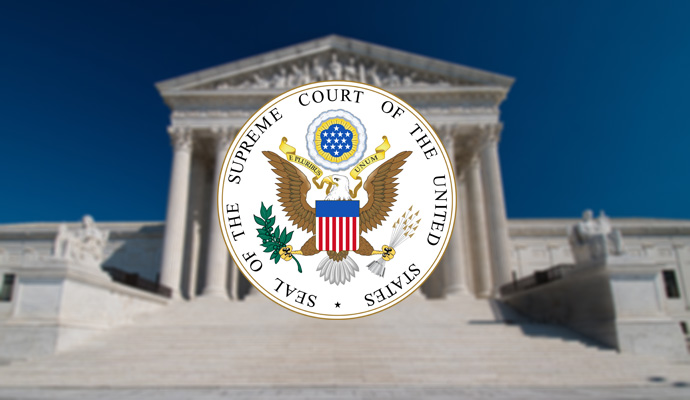DOJ Supports the Affordable Care Act in Supreme Court Case
The department defended the individual mandate as constitutional in its letter and stated that the Affordable Care Act is constitutional even without the individual mandate.

Source: Supreme Court / Getty Images
- The Department of Justice has backed down from its opposition to the Affordable Care Act, a letter from the Department of Justice to the Supreme Court announced.
“Following the change in Administration, the Department of Justice has reconsidered the government’s position in these cases,” stated the letter from Edwin Kneedler, deputy solicitor general, to Honorable Scott Harris, clerk of the Supreme Court. “The purpose of this letter is to notify the Court that the United States no longer adheres to the conclusions in the previously filed brief of the federal respondents.”
Kneedler indicated that the Department of Justice found that the individual mandate was constitutionally sound. He argued that Congress found itself justified in giving Americans the choice between obtaining health insurance coverage and paying a fee to the IRS and that this rationale did not change when the fee was reduced to zero.
“Rather than imposing a new burden on covered individuals, the 2017 amendment preserved the choice between lawful options and simply eliminated any financial or negative legal consequence from choosing not to enroll in health coverage,” the letter said.
The Supreme Court, however, has already ruled the individual mandate as unconstitutional.
If that is the case, then the Department of Justice now asserted that this part of the Affordable Care Act is severable from the rest of the law and that the remainder of the Affordable Care Act is still constitutionally sound.
The letter reminded—as those in defense of the law often have—that normal procedure is to prioritize partial invalidation over complete invalidation of the law in such cases.
Congress’s intent must also be taken into consideration and the Department of Justice took the stance that Congress could have eliminated the entire law after reducing the individual mandate tax to zero if it felt the law could not stand without the individual mandate.
The Department of Justice is not requesting a supplemental briefing.
The move was not a surprise to the healthcare industry, given the Biden administration’s staunch support of the Affordable Care Act. In an executive order signed shortly after Inauguration Day, the new administration called on federal agencies and departments to review and revise any regulations pertaining to the Affordable Care Act that may undermine the law.
The executive order is expected to impact the Trump administration’s 2022 Notice of Benefit Payment Parameters, section 1332 guidance, and rules related to short-term limited-duration health plans.
Additionally, the new president has tapped one of the foremost defenders of the Affordable Care Act in this case, Xavier Becerra, the attorney general of California, to become the new administration’s Secretary of Health and Human Services (HHS).
Legal experts have admitted that the outcome of this case is uncertain, but many are confident that the Affordable Care Act will not be invalidated in its entirety.
The court is expected to hand down its decision in June 2021.
